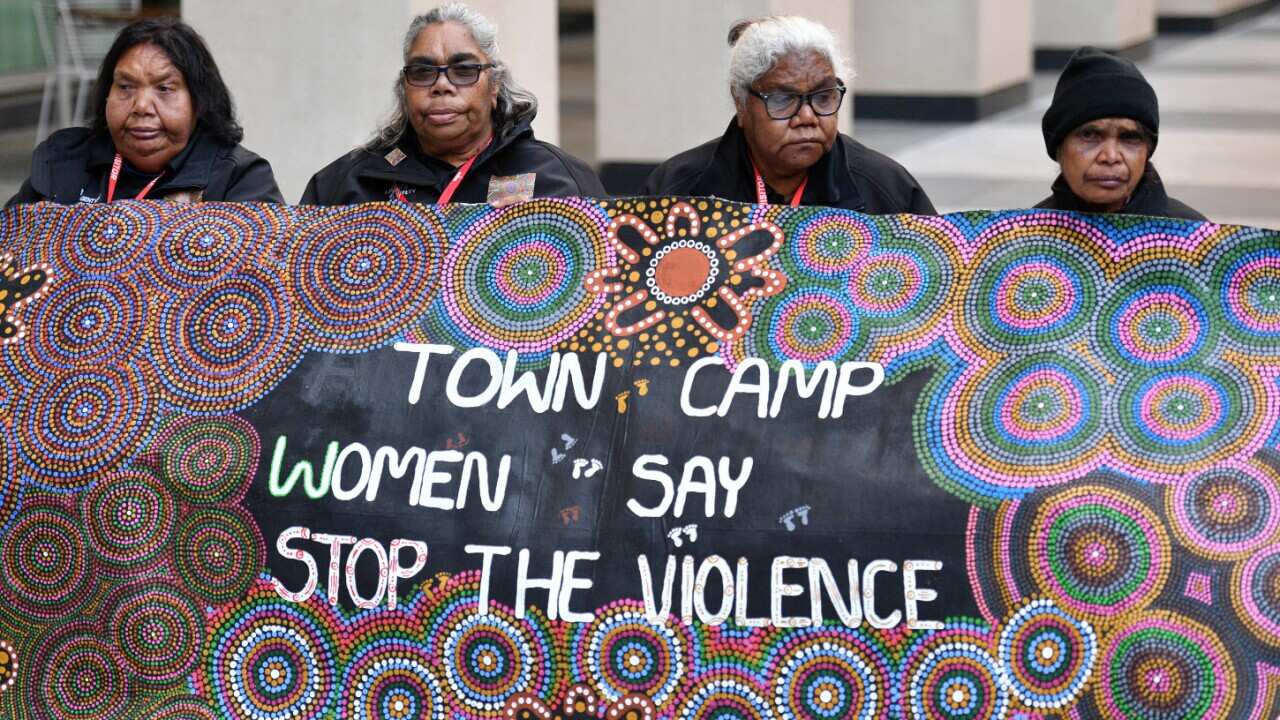

8 min read
This article is more than 5 years old
Explainer
Silence in Canberra compounds wounds for the abused women of Alice Springs
The brave women confronting family violence head on.
Published 24 November 2018 11:38pm
Updated 27 November 2018 4:47pm
By Nakari Thorpe
The brave women confronting family violence head on
Shirleen Campbell has lived through a nightmare. The heartache on her face is unmistakable.
After nearly 10 years of violent abuse, two of her aunts were killed by their husbands.
In 2014, Kwmentyaye Murphy was beaten to death. In 2015, Kwmentyaye McCormack died from a stab wound.
“It was heartbreaking,” Ms Campbell said.
"It broke up a lot of families [and] it disconnected a lot of our cousins.”
In his findings on the two deaths, Judge Greg Cavanagh described violence in the Northern Territory as a ‘true horror’ and ‘literally out of control.’
NT Police statistics show domestic violence has risen 12 per cent year-on-year in Alice Springs.
But Ms Campbell and other brave Indigenous women have banded together in attempt to reverse the trend.
“It is sad, it is gut-wrenching,” Ms Campbell says remembering her aunts.
“I’m doing it for them, I’m doing it for my granddaughter, I’m doing for my daughter.”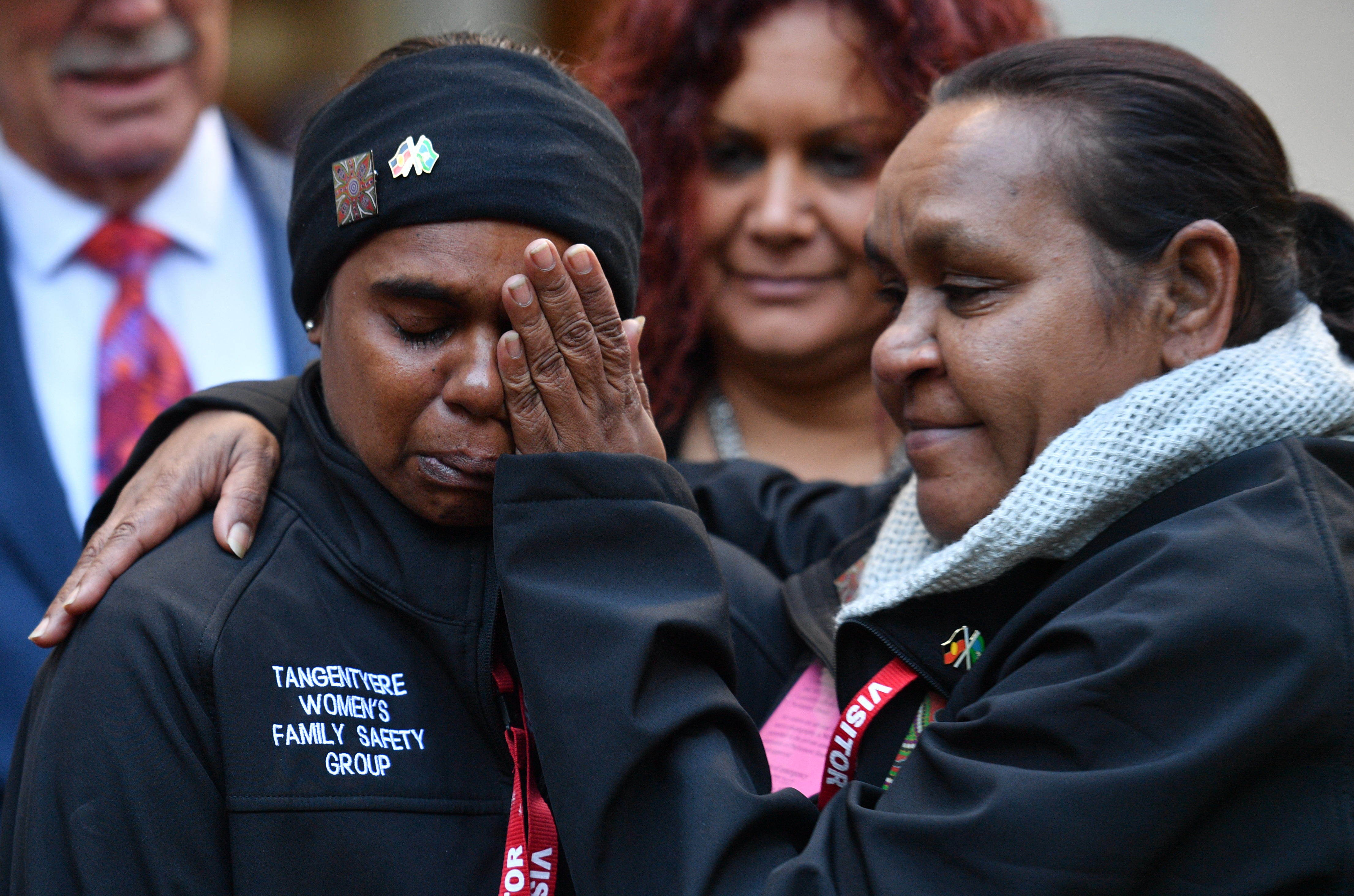 The Tangentyere Women's Family Safety Group aims to amplify Indigenous voices on the issue.
The Tangentyere Women's Family Safety Group aims to amplify Indigenous voices on the issue.

Barbara Shaw (R) consoles Shirleen Campbell (AAP Image/Mick Tsikas) Source: AAP
Ms Campbell, the group co-coordinator, says the women want to “make a thunder noise.”
“We need to stop the family and domestic violence,” she said.
“I’ve experienced family and domestic violence myself, I’ve witnessed it and I’ve also been subjected to other people’s violence so I know where I stand and I know to handle it.”
“I wanted to step up and wanted to be the voice, and really I started off being a voice for my cousins, for them losing mum at a young age it would be heartbreaking and for me stepping up I’m actually being a big sister role and having that voice for them.”
“We can’t actually sweep it under the carpet anymore”
Barbara Shaw was instrumental in setting up the women’s group after the Northern Territory intervention left many communities scarred.
“When we look at the past at how the intervention was set here in the Territory around men, women and children and looking at Alice Springs as the murder capital of Australia and the statistics on women being the highest rate of being victims of domestic violence, I thought we need to change that,” she said.
“We can’t actually sweep it under the carpet anymore.”
Barbara, a resident of Mount Nancy town camp, helped set up the group because she did not want Alice Springs to be known for its family violence.
“I thought if we can get a good program out here for our men, women and children then maybe we'd be able to change the rates, you know, bring the rates down," she said.
"Our men can be looked at in a better way, our children can grow up healthier and safer and we can have a better lifestyle.”
The Tangentyere Family Violence Prevention Program makes up the women’s group along with a men’s behavior change program, and a specialist children’s service.
Every Wednesday the Tangentyere Women's Family Safety Group meet to share stories and strategies to help put an end to the scourge taking over their communities.
Each one of these women has a personal experience of family violence.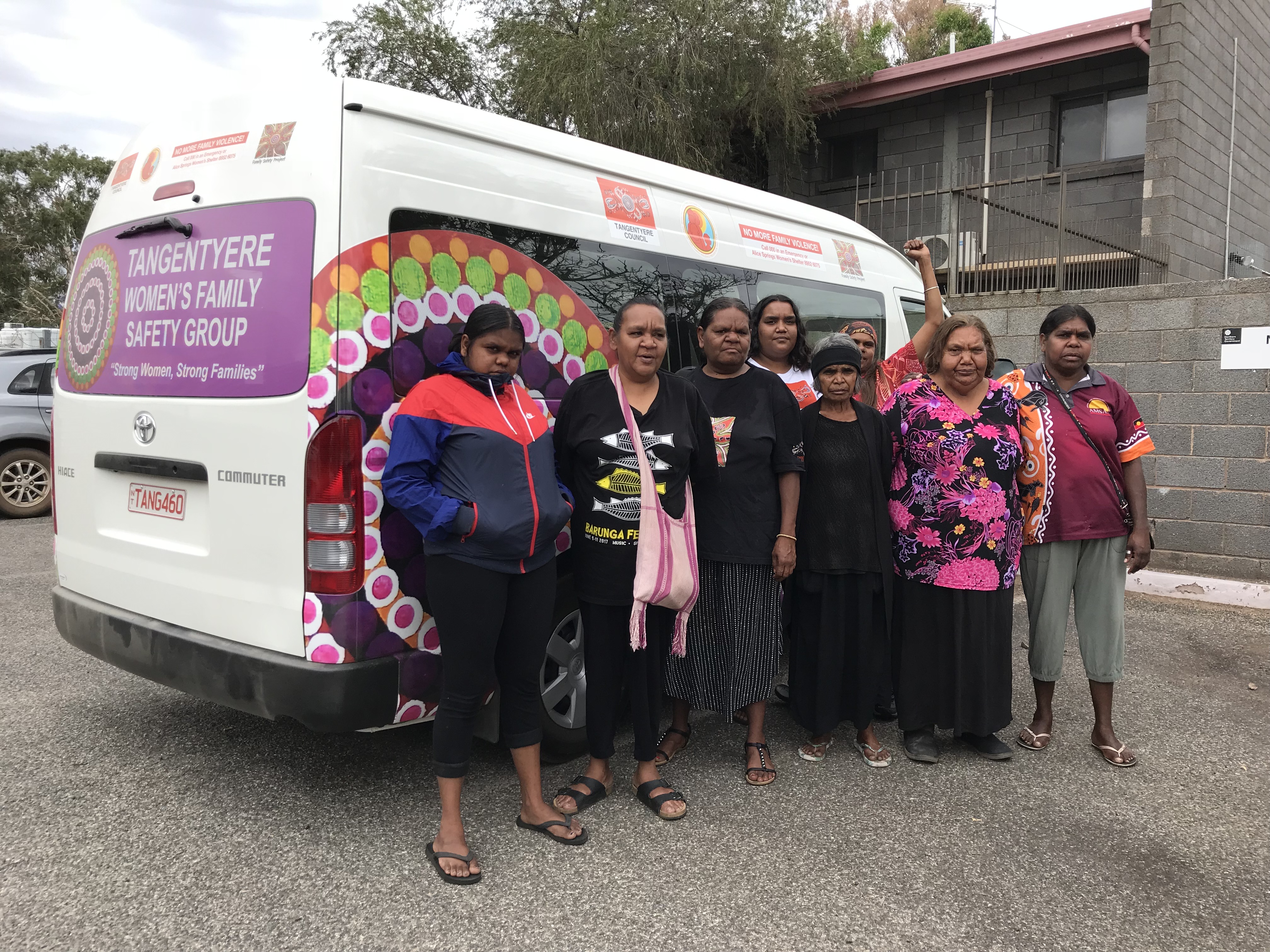 “If we aren’t victims or survivors we are subjected to other people’s domestic violence and that’s why we like to stand up and support each other,” Barbara said.
“If we aren’t victims or survivors we are subjected to other people’s domestic violence and that’s why we like to stand up and support each other,” Barbara said.

Source: NITV
In March this year, the women took their calls to Canberra.
They paid homage to the women who’ve passed with a sorry-sit down and planting colourful bouquets into the grounds of Parliament House.
But the calls to meet the government went unanswered. Only Labor Party politicians were present.
Labor MP Warren Snowdon said the women deserved to be listened to.
“These wonderful women who’ve had the courage of their own convictions have put themselves out there and say listen enough is enough we need to work with people to fix this problem then they ought to be listened to and they shouldn’t need to fly to Canberra to make sure their voice is heard,” he said.
Mr Snowdon, who has held the federal seat of Lingiari since 2001, says grassroots movements like the Tangentyere Women’s Family Safety Group are vital.
“If you bring people from interstate to a place like Alice Springs where they don’t have the knowledge of the local cultures, the languages, and understand the circumstances within which people live or the history of the place then they’re likely to make assumptions which are false,” he said.
“So the Tangentyere women are important informants to people who are going to work in that environment to explain to them what’s appropriate, what’s not appropriate.”
Shirleen Campbell says the women are strong advocates for their communities.
“It is tough but we are working together, it’s tough every day for our culture, we do it every day but we know if something tries to pull us down we learn from it… it makes us stronger we get back up again and we just keep on going.”
“It is like a war zone sometimes”
One woman a week is murdered by her current or former partner, according to Australian Institute of Criminology.
For Aboriginal and Torres Strait Islander women the statistics are more severe.
They report experiencing violence at more than three times the rate of non-Indigenous women, and are 32 times as likely to be hospitalised due to family violence (SCRGSP 2016).
Like many communities across the country, the women of Alice Springs are waiting for action.
Each day brings more casualties to the town’s only women’s shelter. Staff struggle to deal with the fall-out.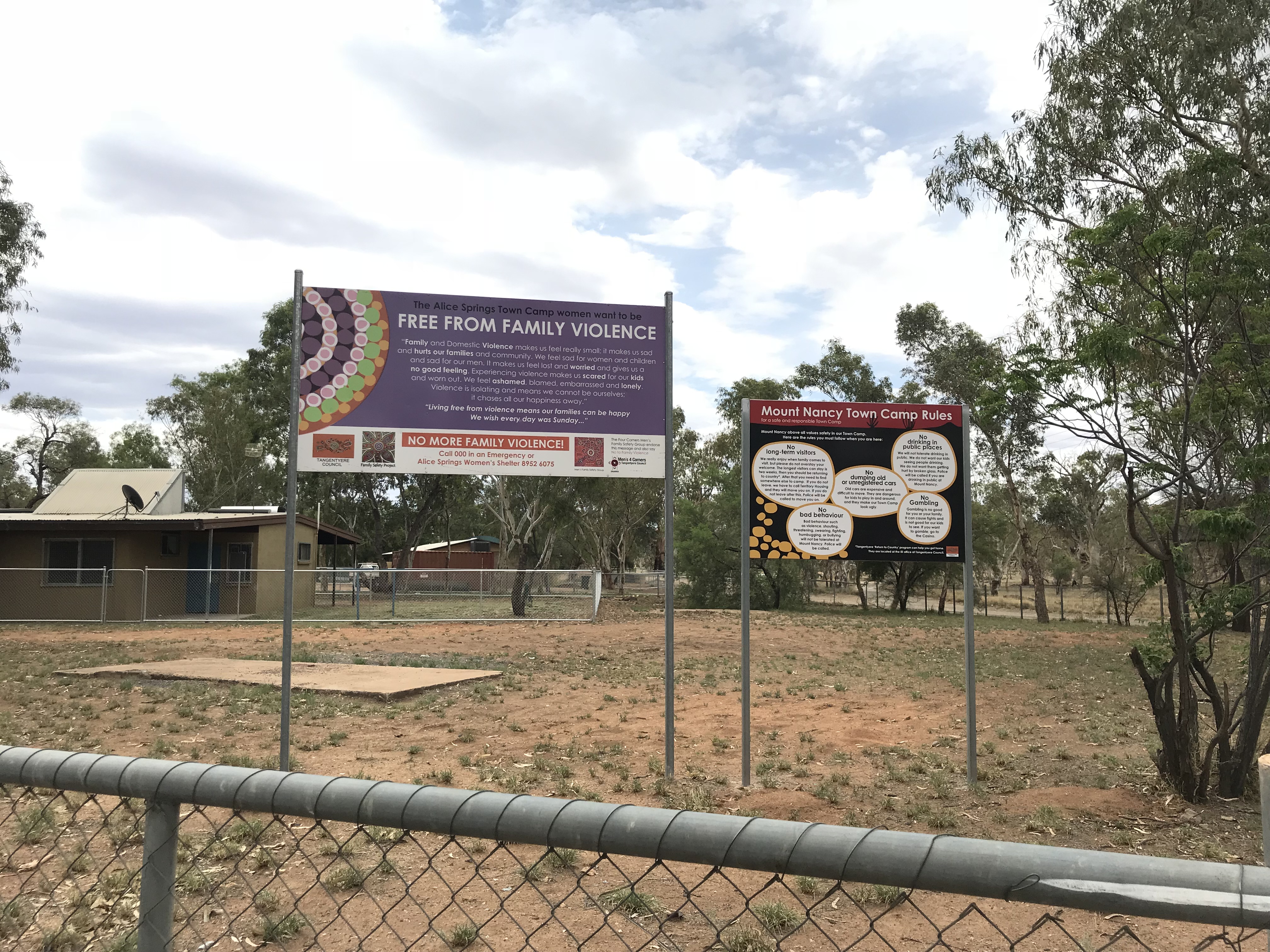 Dianne Gipey, CEO of the Alice Springs Women’s Shelter, says the severity of the injuries is ‘horrific.’
Dianne Gipey, CEO of the Alice Springs Women’s Shelter, says the severity of the injuries is ‘horrific.’

Source: NITV
“The women on any given night have head injuries, they have head wounds, they have body wounds, they have broken legs, broken arms, broken teeth, black eyes its exhaustive the list of injuries ,” she said.
“It is like a war zone sometimes when you come in here.”
Almost every day the shelter has to turn away at least five to six women and their children.
“We struggle, we’re really struggling. It’s around 4500 women seek service from us in any financial year and that figure has fairly stayed the same over the years,” Dianne said.
Of those 4500 women, 97 per cent are Indigenous.
Mums Can, Dads Can
Some men in Alice Springs are also working to stamp out family violence.
A pilot project developed by the community called Mums Can, Dads Can aims to address the misogyny they say precedes domestic violence.
It also hopes to involve more dads, like Chris Forbes.
“Under the intervention we were all being stereotyped,” he said.
“This is a good way to get out there and say we’re not all the same there are some good blokes out there, and it’s good to encourage some other blokes to step up and take on some responsibilities.”
Tangentyere Men's Council have also a set of rules prohibiting domestic violence at the town camps dotted around Alice Springs.
“Under the intervention we were all being stereotyped and labelled with the same brush,” he said.
Chris says the Mums Can, Dads Can project will help influence parents in their modelling of the next generation of parents.
“This is a good way to get out there and say we’re not all the same there are some good blokes out there, and it’s good to encourage some other blokes to step up and take on some responsibilities."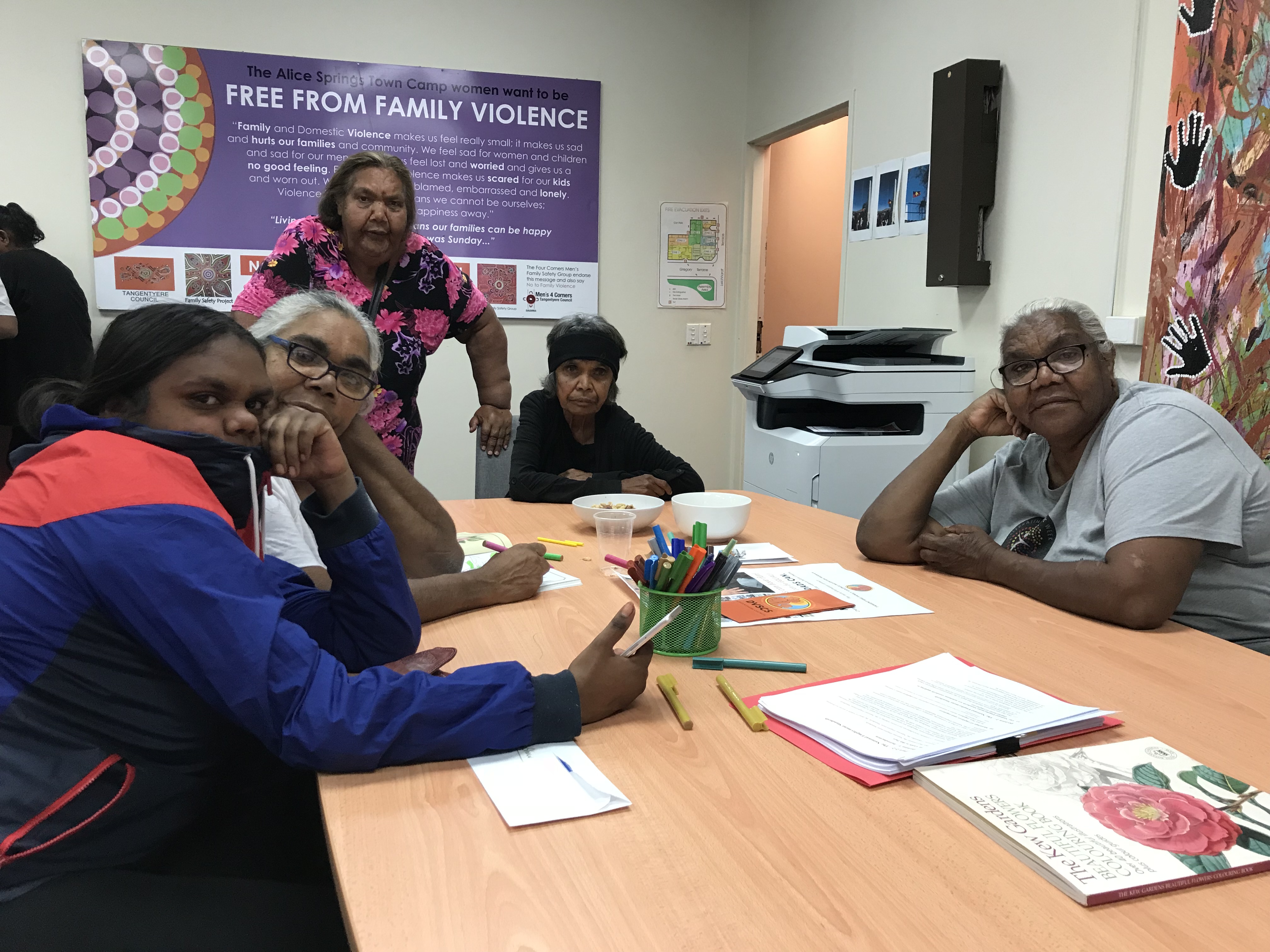 Barbara Shaw says the new project is about shared responsibility.
Barbara Shaw says the new project is about shared responsibility.

Source: NITV
“It’s about equality within the family,” she said.
“It’s about the paradigms too which we work in and changing the rest of society out there that believes all men are the perpetrators, women bashers, child rapists and our women are useless mothers that can’t even look after their children...So now with our family and domestic violence prevention team we’re set out to I guess change the mindsets of other people, we’re gonna work like this to make sure you provide a better structure for your children’s future.”
For Shirleen Campbell, the program will inject a new sense of accountability into the community.
“It’s flipping the gender stereotype in our men and women, you know, growing up the intervention exploited our men, it took the rights away from our men to help us look after our kids, [they] weren’t allowed to take kids to school,” she said.
“Now having a program like Mums Can, Dads Can we’re actually giving them that eye-opening, because we done this 65,000 years ago, we wanna bring that back, show them how it’s done… we want to show them how to raise a kid, not just as an individual but as a community, because its everyone’s job.”
If you or someone you know is impacted by sexual assault, domestic or family violence, call 1800RESPECT on 1800 737 732 or visit

